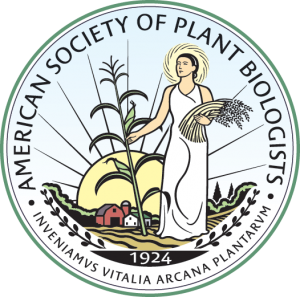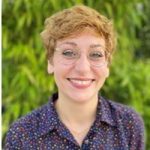Plant Physiology Webinar: Celebrating the February 2022 Focus Issue on The Plant Cell Atlas
The Plant Cell Atlas
Focusing New Technologies on the Kingdom that Nourishes the Planet
Recorded Thursday, February 10, 2022
8 AM PST (UTC – 8) | 11 AM EST (UTC – 5)| 4 PM GMT
About This Webinar
Recent years have brought technological breakthroughs that provide a new perspective on the living cell. Single-cell RNA sequencing and other high-resolution omics can now routinely collect information on tens of thousands of different cells in a single experiment. Advances in live imaging offer unprecedented resolution into the dynamic function of organelles and cellular machines. Proximity labeling opens new avenues to interrogate protein interactions in live cells and inventory the proteome of cellular compartments in specific cell types.
A common thread of these techniques and others featured in the Focus Issue is not only large-scale data collection, but also fine-scale insights into the plant cell and its compartments. These new techniques offer a systems-level approach that helps disentangle the cacophony of signals and processes of individual cell types into their functional units – the cell, the organelle, and the interactome of a single protein. This Focus Issue embarks on an early exploration of the application of these technologies to plant cell biology.
This special webinar was organized by the Focus Issue editors Kenneth D. Birnbaum, Julia Bailey-Serres, Marisa Otegui, and Sue Rhee, who nvited three speakers whose work appears in this Focus Issue to share their findings.
SPEAKERS
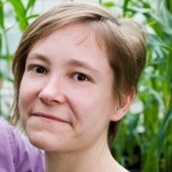 Hilde Nelissen: Spatial transcriptomics of the maize shoot apex: from single cell to leaf growth
Hilde Nelissen: Spatial transcriptomics of the maize shoot apex: from single cell to leaf growth
Hilde Nelissen is group leader at the center for Plant Systems Biology at the VIB and Ghent University. The main focus of Hilde’s research is to understand how plant organs grow, starting from the maize leaf, which offers an accessible model to study the dynamic changes in the molecular and physiological growth processes. Plants with altered growth characteristics are evaluated with a range of molecular and phenotyping technologies. Past research in her lab focused on the translatability of plant biotechnological findings from Arabidopsis to maize, while recent work aims at deepening and applying a highly conserved growth regulatory network.
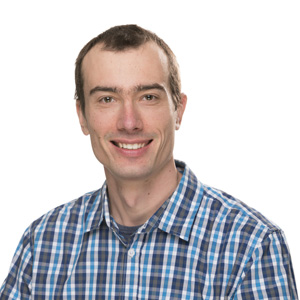 Daniel Kierzkowski: Live-Imaging provides an atlas of cellular growth dynamics in stamen
Daniel Kierzkowski: Live-Imaging provides an atlas of cellular growth dynamics in stamen
Daniel Kierzkowski is an assistant professor and principal investigator at the University of Montréal in Canada. He obtained an MSc in Plant Biology from AgroParisTech in France in 2005, and a PhD in Biology from the Adam Mickiewicz University in Poznan in Poland in 2009. He worked as a postdoctoral fellow in the lab of Cris Kuhlemeier, and then in the group of Miltos Tsiantis. Daniel’s research focuses on molecular, cellular, and tissue level mechanisms underlying organogenesis in plants. His expertise in growth tracking, 3D-image analysis, genetics, and biomechanics is applied to understand how growth, patterning, and differentiation interact in mechanically connected tissues to produce a diversity of shapes in plant organs.
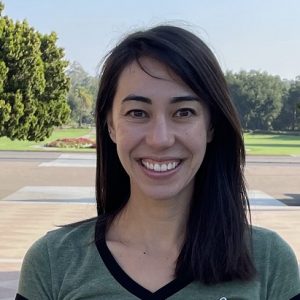 Jenn Brophy: Toward synthetic plant development
Jenn Brophy: Toward synthetic plant development
Jenn Brophy is an assistant professor of bioengineering at Stanford and a Chan Zuckerburg Biohub investigator. She received her BS in bioengineering from UC Berkeley and PhD from MIT, where she worked with Chris Voigt and Alan Grossman to develop a tool for engineering undomesticated bacteria and modifying soil microbiomes in situ. For her postdoctoral research, she worked with José Dinneny at Stanford to engineer spatial patterns of gene expression across plant tissues using synthetic genetic circuits. In her own lab, Jenn is interested in applying synthetic biology to plants and bacteria in ways that address climate change issues for a sustainable future.
Moderated by Kenneth D. Birnbaum
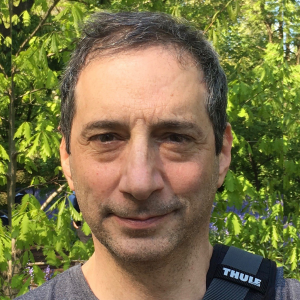
Kenneth D. Birnbaum is a professor and developmental biologist at New York University. His research focuses on the plant’s remarkable ability to reorganize tissues and organs during regeneration. His lab has also helped develop experimental approaches for high throughput and systems biology in plant development. He developed a system for transcriptomic readouts of specific cell types in plants during his postdoc and has since helped adapt single-cell RNA-seq techniques in plants. Kenneth received his PhD from New York University and the American Museum of Natural History. His PhD focused on the conservation genetics of avocado land races in the Pacific Lowlands of the Central American Isthmus.
This webinar is freely available thanks to the support of the American Society of Plant Biologists. Join today.
